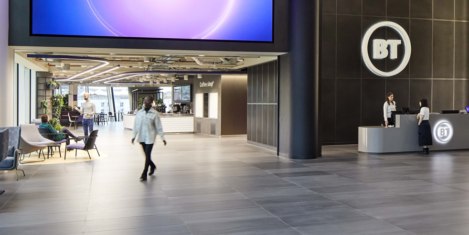To provide the best experiences, we use technologies like cookies to store and/or access device information. Consenting to these technologies will allow us to process data such as browsing behaviour or unique IDs on this site. Not consenting or withdrawing consent, may adversely affect certain features and functions.
The technical storage or access is strictly necessary for the legitimate purpose of enabling the use of a specific service explicitly requested by the subscriber or user, or for the sole purpose of carrying out the transmission of a communication over an electronic communications network.
The technical storage or access is necessary for the legitimate purpose of storing preferences that are not requested by the subscriber or user.
The technical storage or access that is used exclusively for statistical purposes.
The technical storage or access that is used exclusively for anonymous statistical purposes. Without a subpoena, voluntary compliance on the part of your Internet Service Provider, or additional records from a third party, information stored or retrieved for this purpose alone cannot usually be used to identify you.
The technical storage or access is required to create user profiles to send advertising, or to track the user on a website or across several websites for similar marketing purposes.
 The number of people working from home in the UK from October to December 2019 and January to March 2022 has increased by 108.8 percent, according to the latest employment data from the Office for National Statistics. Between the two periods, the number of home workers increased from 4.7 million to 9.9 million. The number of homeworkers increased by more than 50 percent in all UK regions. (more…)
The number of people working from home in the UK from October to December 2019 and January to March 2022 has increased by 108.8 percent, according to the latest employment data from the Office for National Statistics. Between the two periods, the number of home workers increased from 4.7 million to 9.9 million. The number of homeworkers increased by more than 50 percent in all UK regions. (more…)




































July 14, 2022
There are now fewer taboo workplace subjects, and we should talk about that
by Peter Nagle • Comment, Wellbeing